Mustafa Akdeniz
Coded Computing for Low-Latency Federated Learning over Wireless Edge Networks
Nov 12, 2020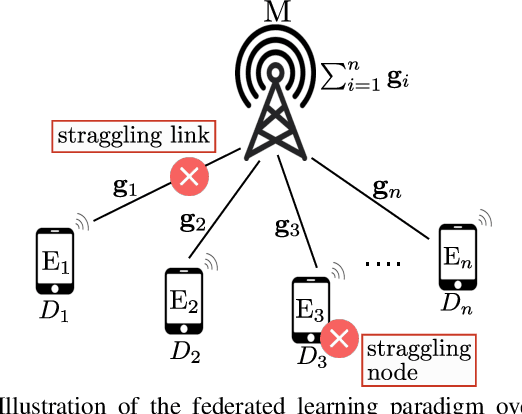
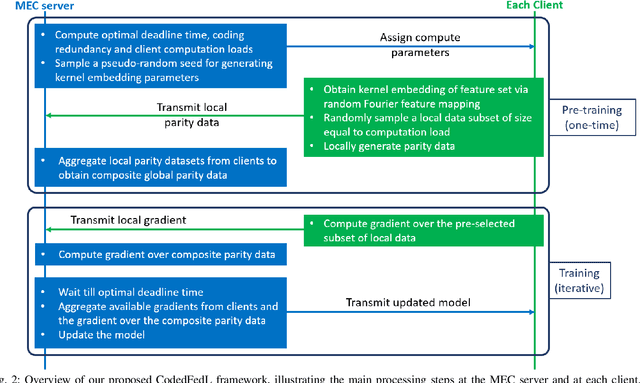
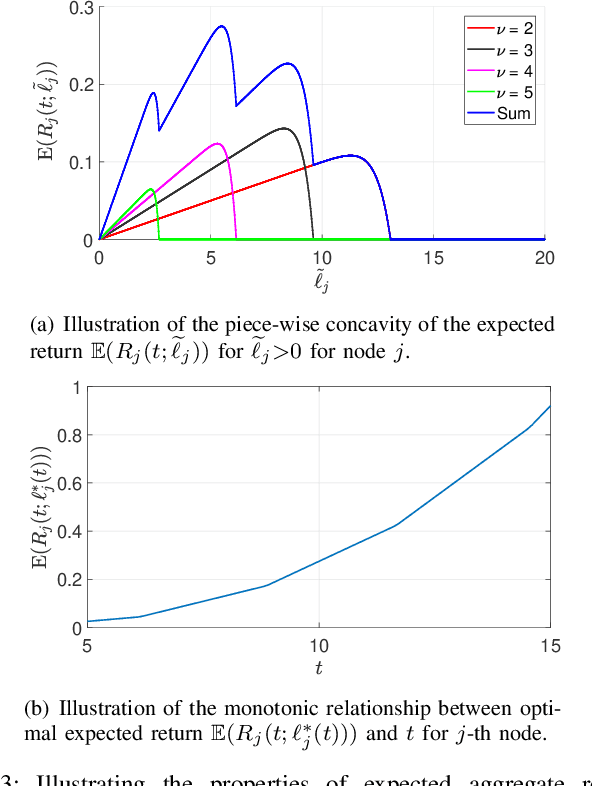
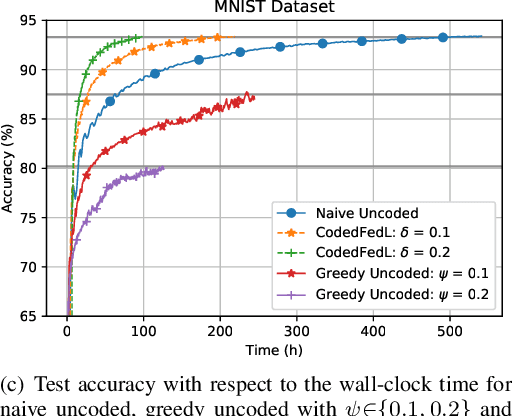
Abstract:Federated learning enables training a global model from data located at the client nodes, without data sharing and moving client data to a centralized server. Performance of federated learning in a multi-access edge computing (MEC) network suffers from slow convergence due to heterogeneity and stochastic fluctuations in compute power and communication link qualities across clients. We propose a novel coded computing framework, CodedFedL, that injects structured coding redundancy into federated learning for mitigating stragglers and speeding up the training procedure. CodedFedL enables coded computing for non-linear federated learning by efficiently exploiting distributed kernel embedding via random Fourier features that transforms the training task into computationally favourable distributed linear regression. Furthermore, clients generate local parity datasets by coding over their local datasets, while the server combines them to obtain the global parity dataset. Gradient from the global parity dataset compensates for straggling gradients during training, and thereby speeds up convergence. For minimizing the epoch deadline time at the MEC server, we provide a tractable approach for finding the amount of coding redundancy and the number of local data points that a client processes during training, by exploiting the statistical properties of compute as well as communication delays. We also characterize the leakage in data privacy when clients share their local parity datasets with the server. We analyze the convergence rate and iteration complexity of CodedFedL under simplifying assumptions, by treating CodedFedL as a stochastic gradient descent algorithm. Furthermore, we conduct numerical experiments using practical network parameters and benchmark datasets, where CodedFedL speeds up the overall training time by up to $15\times$ in comparison to the benchmark schemes.
Coded Computing for Federated Learning at the Edge
Jul 14, 2020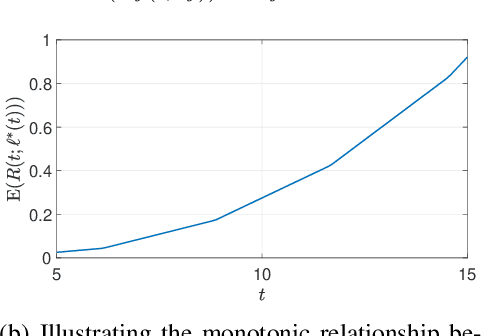

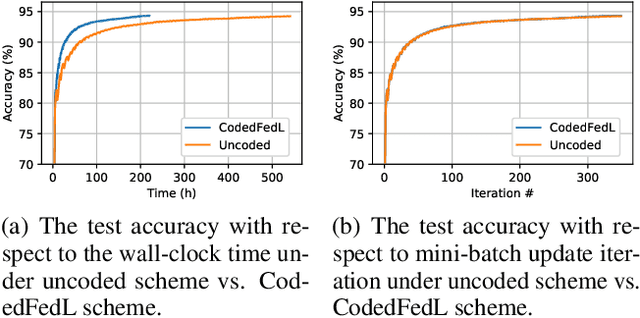
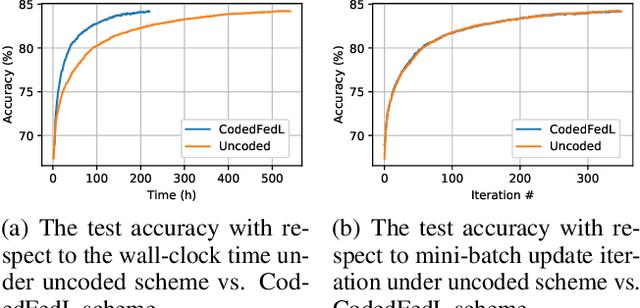
Abstract:Federated Learning (FL) is an exciting new paradigm that enables training a global model from data generated locally at the client nodes, without moving client data to a centralized server. Performance of FL in a multi-access edge computing (MEC) network suffers from slow convergence due to heterogeneity and stochastic fluctuations in compute power and communication link qualities across clients. A recent work, Coded Federated Learning (CFL), proposes to mitigate stragglers and speed up training for linear regression tasks by assigning redundant computations at the MEC server. Coding redundancy in CFL is computed by exploiting statistical properties of compute and communication delays. We develop CodedFedL that addresses the difficult task of extending CFL to distributed non-linear regression and classification problems with multioutput labels. The key innovation of our work is to exploit distributed kernel embedding using random Fourier features that transforms the training task into distributed linear regression. We provide an analytical solution for load allocation, and demonstrate significant performance gains for CodedFedL through experiments over benchmark datasets using practical network parameters.
 Add to Chrome
Add to Chrome Add to Firefox
Add to Firefox Add to Edge
Add to Edge